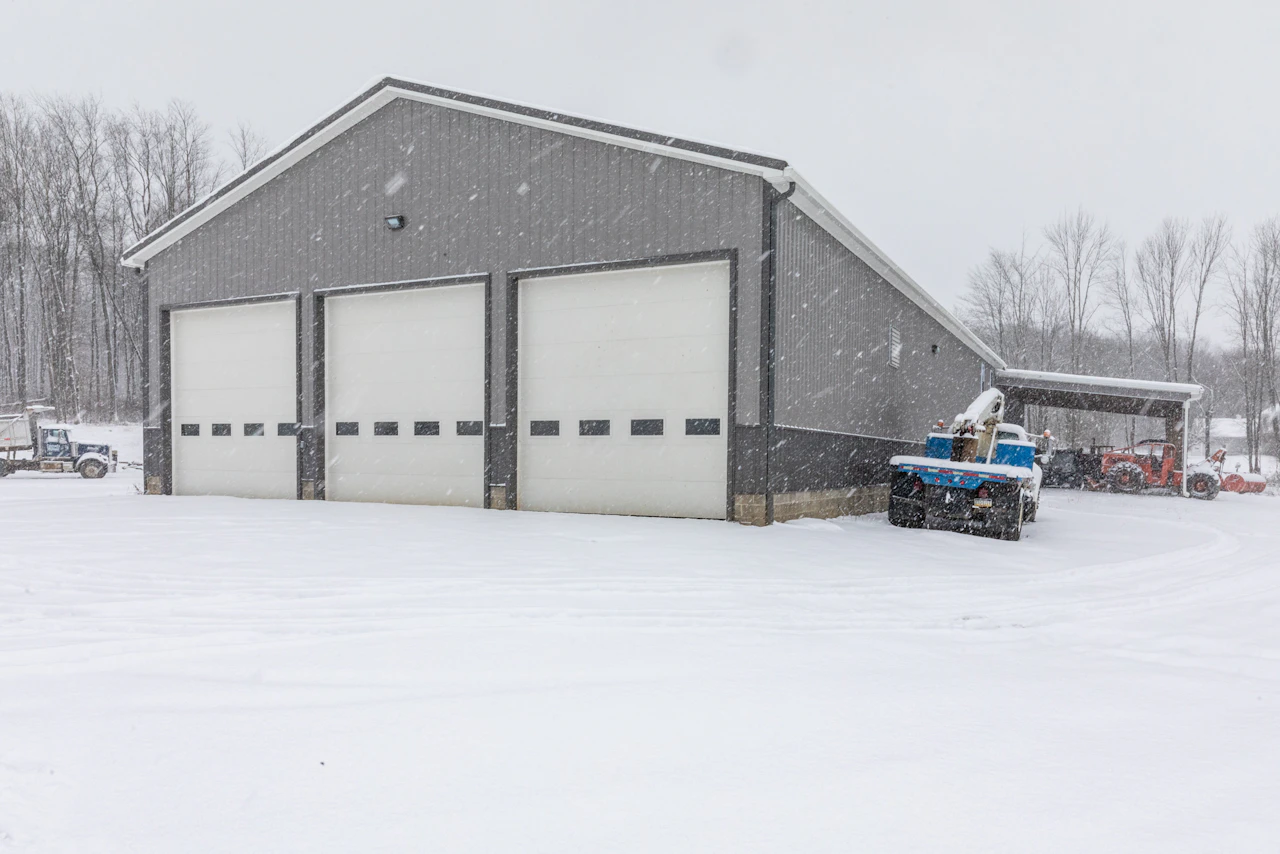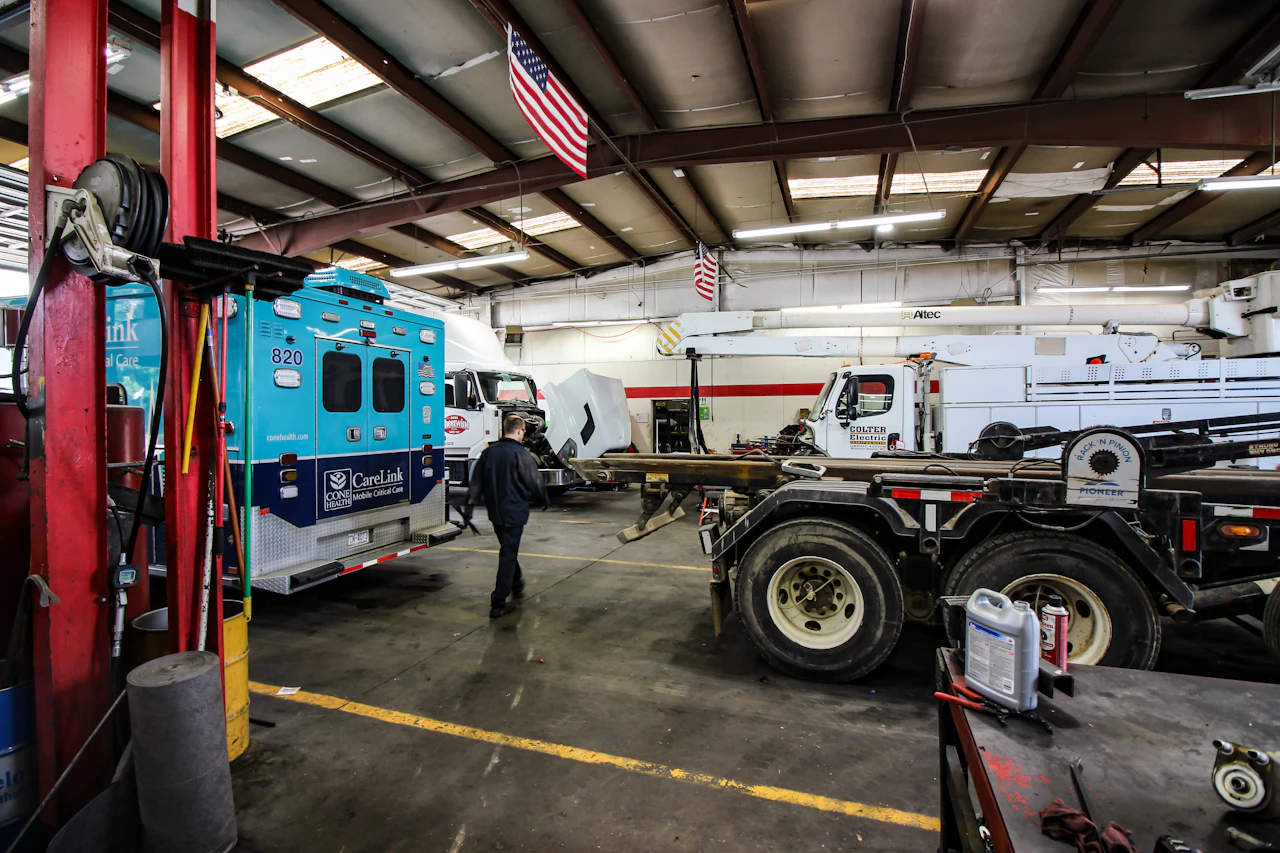When winter temperatures plummet, your heavy-duty truck’s cooling system faces new challenges. Selecting the right heavy-duty coolant is not just about preventing freezing—it’s about protecting your engine from corrosion, maintaining optimal performance, and ensuring longevity.
At National Fleet Management, we understand that your fleet operates in extreme conditions, making proper coolant selection a top priority during the winter months. In this guide, we’ll explore the importance of choosing the right coolant, key factors to consider, and actionable tips for maintaining your cooling system in cold weather.
Why the Right Coolant Matters
Prevents Freezing
Heavy-duty coolants contain antifreeze agents, such as ethylene glycol or propylene glycol, which lower the freezing point of the coolant mixture. This prevents ice formation in the engine, radiator, and hoses, ensuring smooth operation even in subzero temperatures.
Protects Against Corrosion
Winter conditions accelerate corrosion, especially when road salts and moisture are present. High-quality coolants contain corrosion inhibitors that protect critical components like the radiator, water pump, and engine block from rust and degradation.
Maintains Engine Temperature
Coolants help maintain a balanced engine temperature by preventing both freezing and overheating. Even in winter, engines generate significant heat that requires efficient dissipation to avoid damage.
Extends Component Lifespan
The right coolant prevents wear and tear on components such as seals, gaskets, and thermostat housings, reducing repair costs and prolonging the life of your engine.
Key Factors to Consider When Choosing a Heavy-Duty Coolant
1. Coolant Type
There are three main types of heavy-duty coolants:
• Conventional Coolants: Require regular testing and supplemental additives to maintain performance.
• Extended Life Coolants (ELC): Contain advanced inhibitors that provide long-lasting protection without frequent additives.
• Hybrid Organic Acid Technology (HOAT) Coolants: Blend organic and conventional inhibitors for balanced protection.
Tip: Consult your truck’s manual or a trusted service provider like National Fleet Management to determine the recommended coolant type.
2. Temperature Range
Check the coolant’s freeze and boil protection ratings, typically listed on the container. For winter use, ensure the coolant can withstand temperatures well below freezing, especially if operating in extreme climates.
Pro Tip: A 50/50 mix of coolant and distilled water provides optimal freeze and boil protection for most conditions. In harsher climates, consider a 60/40 mix for added freeze protection.
3. Compatibility with Engine Metals
Modern heavy-duty engines use a mix of metals, including aluminum, cast iron, and copper. Choose a coolant that’s specifically formulated to protect all types of metal from corrosion.
4. Additive Package
Heavy-duty coolants often include supplemental coolant additives (SCAs) or nitrite-free formulations to prevent scale buildup, cavitation, and pitting. Extended-life coolants are particularly effective as they don’t require frequent additive top-ups.
5. Coolant Color
While coolant color isn’t the definitive factor, it often indicates the type and formulation of the coolant. Mixing incompatible coolants can cause gelling or loss of protective properties. Always ensure compatibility before topping off or replacing coolant.
Winter Maintenance Tips for Heavy-Duty Cooling Systems
Perform a Coolant Test
Before winter hits, test the coolant’s freeze point, pH levels, and inhibitor concentration. Use a refractometer or test strips to ensure the coolant meets winter requirements.
Inspect the Cooling System
A functioning coolant system is essential for maintaining proper engine temperatures. Inspect hoses, clamps, and the radiator for leaks, cracks, or corrosion. Replace damaged components promptly.
Use Distilled Water for Dilution
If mixing your coolant with water, always use distilled water to prevent mineral deposits that can clog the system.
Flush and Replace Old Coolant
Coolant degrades over time, losing its effectiveness. If the coolant is old, contaminated, or incompatible with winter requirements, flush the system and replace it with a fresh, recommended coolant type.
Monitor Coolant Levels
Low coolant levels reduce the system’s efficiency and increase the risk of freezing. Check levels frequently, especially during temperature fluctuations.
Common Coolant Mistakes to Avoid
1. Using Water Alone
Water may work as a temporary cooling solution in emergencies, but it lacks antifreeze properties and corrosion inhibitors, making it unsuitable for winter.
2. Mixing Incompatible Coolants
Combining different coolant types can result in gelling, reducing the effectiveness of the cooling system and potentially causing blockages. Always ensure the new coolant matches the existing formulation.
3. Ignoring the Coolant’s Age
Even high-quality coolants degrade over time. Neglecting to replace old coolant can lead to poor freeze protection, scaling, and corrosion.
4. Overlooking SCA Requirements
For conventional coolants, failing to add supplemental coolant additives (SCAs) can leave the engine vulnerable to pitting, cavitation, and scale buildup.
Benefits of Partnering with National Fleet Management
At National Fleet Management, we specialize in ensuring your fleet’s cooling systems are optimized for winter conditions. Our services include:
• Professional coolant testing and flushing.
• Expert advice on selecting the best heavy-duty coolant for your fleet.
• Comprehensive inspections to identify and address potential cooling system issues.
With our help, your trucks will stay road-ready, no matter how cold the temperatures drop.
Conclusion
Choosing the right heavy-duty coolant this winter is essential for protecting your truck’s engine and ensuring reliable performance. By considering factors like coolant type, temperature range, and compatibility, you can make informed decisions that safeguard your fleet against freezing, corrosion, and breakdowns.
For personalized guidance and professional maintenance services, trust National Fleet Management to keep your cooling systems in peak condition. Don’t wait for winter challenges to catch you off guard—contact us today to prepare your fleet for the cold months ahead!

